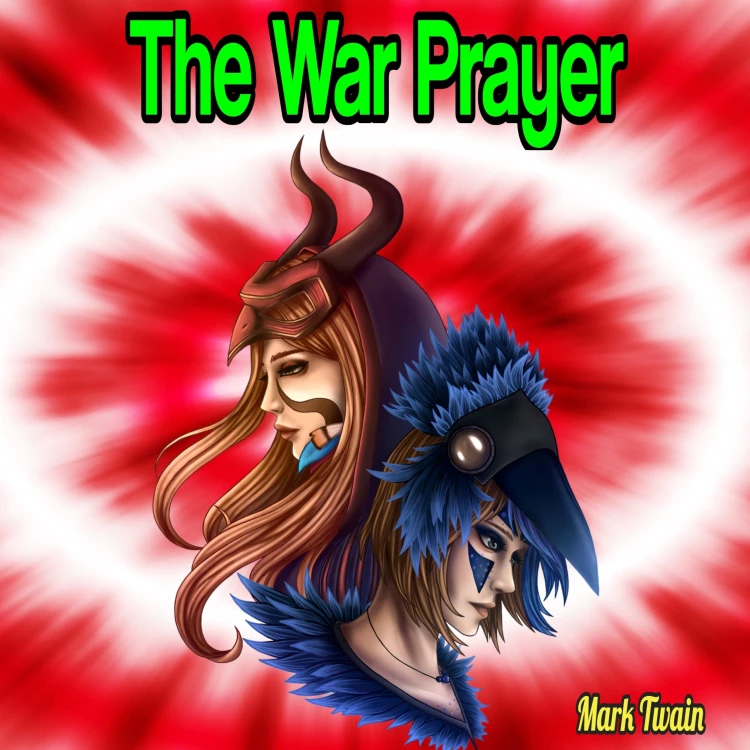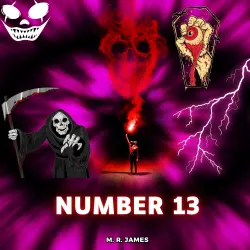
The War Prayer
Mark Twain
Unabridged
10 minutos
Nota: La reproducción de los audiolibros o de las obras de audio en las respectivas plataformas, por ejemplo Spotify, puede generar gastos. Lismio no tiene ninguna influencia sobre qué audiolibros y obras de audio están disponibles en el servicio.
Algunos artículos contienen enlaces de afiliados (marcados con un asterisco *). Si hace clic en estos enlaces y compra productos, recibiremos una pequeña comisión sin coste adicional para usted. Su apoyo ayuda a mantener este sitio en funcionamiento y a seguir creando contenidos útiles. Gracias por su apoyo.
De la editorial
The War Prayer by Mark Twain a short story or prose poem by Mark Twain, is a scathing indictment of war, and particularly of blind patriotic and religious fervor as motivations for war. The structure of the work is simple: an unnamed country goes to war, and patriotic citizens attend a church service for soldiers who have been called up. The people call upon God to grant them victory and protect their troops. Suddenly, an "aged stranger" appears and announces that he is God's messenger.
He explains to them that he is there to speak aloud the second part of their prayer for victory, the part which they have implicitly wished for but have not spoken aloud themselves: the prayer for the suffering and destruction of their enemies. What follows is a grisly depiction of hardships inflicted on war-torn nations by their conquerors. The story ends with the man being ignored.
History:
"The War Prayer" was written in 1905, and is believed to be a response to both the Spanish-American War and the subsequent Philippine-American War. It was left unpublished by Mark Twain at his death in April 1910, largely due to pressure from his family, who feared that the story would be considered sacrilegious. Twain's publisher and other friends also discouraged him from publishing it.
According to one account, his illustrator Dan Beard asked him if he would publish it anyway, and Twain replied, "No, I have told the whole truth in that, and only dead men can tell the truth in this world. It can be published after I am dead." Mindful of public reaction, he considered that he had a family to support and did not want to be seen as a lunatic or fanatic.
"The War Prayer" was first published in Harper's Magazine in November 1916, and was included in Europe and Elsewhere, a collection of Twain's essays edited by Albert Bigelow Paine, Twain's literary estate agent and biographer.
He explains to them that he is there to speak aloud the second part of their prayer for victory, the part which they have implicitly wished for but have not spoken aloud themselves: the prayer for the suffering and destruction of their enemies. What follows is a grisly depiction of hardships inflicted on war-torn nations by their conquerors. The story ends with the man being ignored.
History:
"The War Prayer" was written in 1905, and is believed to be a response to both the Spanish-American War and the subsequent Philippine-American War. It was left unpublished by Mark Twain at his death in April 1910, largely due to pressure from his family, who feared that the story would be considered sacrilegious. Twain's publisher and other friends also discouraged him from publishing it.
According to one account, his illustrator Dan Beard asked him if he would publish it anyway, and Twain replied, "No, I have told the whole truth in that, and only dead men can tell the truth in this world. It can be published after I am dead." Mindful of public reaction, he considered that he had a family to support and did not want to be seen as a lunatic or fanatic.
"The War Prayer" was first published in Harper's Magazine in November 1916, and was included in Europe and Elsewhere, a collection of Twain's essays edited by Albert Bigelow Paine, Twain's literary estate agent and biographer.








